Riccitiello's exit a rare bit of accountability | This Week in Business
Let's compare the consequences of Unity's Runtime Fee debacle to those of historical game executive bellyflops
This Week in Business is our weekly recap column, a collection of stats and quotes from recent stories presented with a dash of opinion (sometimes more than a dash) and intended to shed light on various trends. Check every Friday for a new entry.
John Riccitiello stepped down from Unity this week, vacating the CEO and chairman roles less than a month after an ill-advised and poorly thought out attempt to impose a per-install fee on games made with the Unity engine.
The announcement of Riccitiello's departure makes no mention of the still-blazing Runtime Fee trash fire
The announcement of Riccitiello's departure makes no mention of the still-blazing Runtime Fee trash fire in the background that led to this. Instead, it frames it as a retirement "effective immediately," which is not the way this sort of transition normally happens.
We do see it from time to time in the case of an executive suffering some personal or medical catastrophe, and we obviously hope that Riccitiello is in fine health, aside from the metaphorical large-caliber bullet wound in the foot.
I'm not just hoping Riccitiello is fine because of basic human decency. I mean, that's part of it, sure. But if he's fine, then we also have something truly precious here, one of the rarest of all things in all the games industry (and increasingly the world at large):
Accountability.
I'm practically giddy at the very idea of it. A person in a position of immense power screwed up terribly, and as a result, they give up that position of power? It's almost unfathomable.
Riccitiello didn't push Unity Create head Marc Whitten onto his sword like Activision Blizzard CEO Bobby Kotick did to Blizzard president J Allen Brack to take the fall for Activision Blizzard's cultural rot.
Riccitiello didn't blame others for lying to him like Ubisoft CEO Yves Guillemot did when asked about whether he fostered the abusive and sexist work culture at the publisher or was simply ignorant of it.
Riccitiello didn't suggest the wrongs happened so long ago there's no point in righting them like Xbox Game Studios head Matt Booty did when reports surfaced of Fallout 76 crunch, or like Twitch, Activision Blizzard, Ubisoft, and way too many others have done when dealing with anything that can be described using the past tense.
"Ah, but those are all about horrible work place harassment and abuse," you say. "What about accountability for something with a more tangible monetary impact, the thing companies are expected to care about most?"
That's a very good question, you.
For no good reason, allegations of harassment and toxic workplaces are taken much less seriously than botched business decisions
For no good reason, allegations of harassment and toxic workplaces are taken much less seriously than botched business decisions. We know this because Riccitiello's in hot water for the Runtime Fee debacle, not because a former VP of Unity sued the company in 2019 alleging Riccitiello ran a "highly sexualized" workplace, "spoke openly about women in a sexual manner, made sexist jokes, and flirted with and pursued sexual relationships with female employees and contractors," and threatened her to keep quiet after she turned down sexual propositions from him. (She was later fired and is claiming wrongful termination in her suit.)
After all, that suit has been going on for more than four years now and is headed (very slowly) for arbitration. But looking from the outside, it's mostly been business as usual for Unity and Riccitiello.
Not so with the Runtime Fee issue. Developers, analysts, and the media were on Unity's back from day one, hammering its poor messaging, its blatantly unfair altering of past deals, and generally just burying the company for taking one of the more approachable and established professional development solutions out there and making it significantly worse for everyone using it.
Surely when an executive damages the business so dramatically there's a better track record of accountability?
Perhaps. Let's look back at a few of our favorite botched business cautionary tales and what happened to the people responsible.
Ken Kutaragi

When Sony execs look back on the PlayStation 3 as "a stark moment of hubris" for the company, a lot of that falls on then-Sony Computer Entertainment International president and forever-"Father of the PlayStation" Ken Kutaragi, who championed the Cell processor responsible for the system's near-fatal flaws of being significantly more expensive than the competition and playing inferior versions of some games because it was so difficult to develop for.
QUOTE | "Probably too cheap." – In advance of the PS3's launch, Kutaragi describes the system's price of $500 for the 20GB version and $600 for the 60GB version. Keep in mind the Xbox 360 was already on shelves in $300 and $400 configurations.
QUOTE | "If you consider the PlayStation 3 a toy, then yes, it is an expensive toy. However, it is more than a toy. It is a PlayStation 3. And it is the only PlayStation 3. I hope that those who understand this will gladly purchase it." – Kutaragi tries a tautological pitch to justify the PS3's price.
STAT | 120 – The number of frames per second Kutaragi claimed PS3 games could run at, even though there were no TVs available capable of that.
QUOTE | "The machine's architecture is tricky, and I don't like Ken Kutaragi." – Original Final Fantasy developer Hironobu Sakaguchi explains in 2007 why he didn't plan to make games for the PS3.
Sony understood that the product it was delivering would not live up to Kutaragi's hype
While Kutaragi certainly projected confidence in pitching the PS3 (some might call it "hubris"), Sony clearly understood early on that the product it was delivering would not live up to Kutaragi's hype.
STAT | 20% - The price cut Sony gave the PS3 in Japan. Two months before the system even launched.
So whatever happened to Kutaragi? The same month the PS3 launched in Japan and North America, Sony promoted him.
Sure, it read to the rest of the world as the sort of "promotion" that gets someone harmful out of the way but lets them save face at the same time. That apparently wasn't enough of a punishment for Sony's liking, and the 56-year-old executive was retired by Sony five months later, seemingly pushed out the door but allowed to keep the title of honorary chairman of SCEI.
Don Mattrick
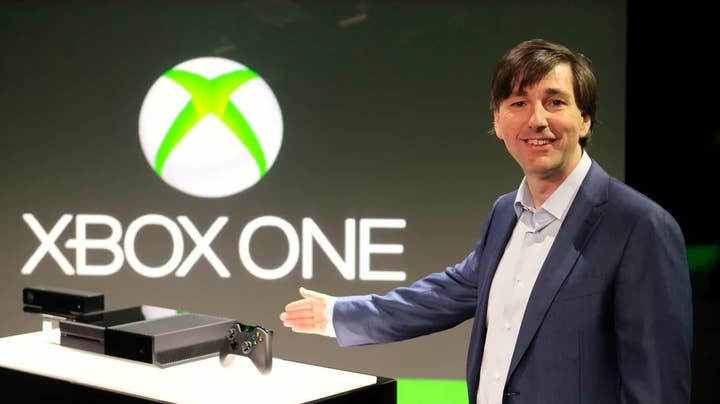
Here's one that should be fresh in mind for any readers of our 10 Years Ago This Month features. Microsoft interactive entertainment business president Don Mattrick was running the Xbox business at the tail end of the Xbox 360 generation and oversaw the original strategy for the Xbox One leading up to its 2013 launch. So how did that go?
QUOTE | "We lost the worst generation to lose in the Xbox One generation." – Current Xbox head Phil Spencer, in an interview earlier this year.
Just as a refresher, the Xbox 360 was a dynamite second act for Microsoft's console business. It built the Xbox brand into a legit competitor and (with a huge assist from the Wii) erased the dominant market share Sony had built up in the PS2 generation.
Five years into the system's lifespan, Microsoft rolled out Kinect, a gimmicky answer to the Wii's motion controls that offered a genuinely new way to interact with games and was well-received at retail. It helped breathe new life into the 360 and keep the fires warm until the Xbox One was ready for launch. A steady hand at the wheel could very well have let Microsoft at least keep pace with Sony in the coming generation.
Under Mattrick, we got perhaps the worst major console launch campaign of all time
Instead, under Mattrick, we got perhaps the worst major console launch campaign of all time.
Let's start with the early rumors around the system, with talk of an always-online scheme to effectively destroy the used game market and discourage piracy. Even when such ideas were merely whispered about in early 2013, the reaction they received was profoundly negative. The March debut of EA's always-online SimCity was a disaster, and probably a good signal to Microsoft that it should reconsider its plans.
Even so, Mattrick, pushed forward. In May, the company announced the Xbox One in an hour-long reveal event, but it didn't talk about the system's online restrictions that Xbox fans were worried about. It also didn't talk about the games that Xbox fans might have been excited about. Instead, it talked about TV, sports, and Skype.
Fucking Skype.
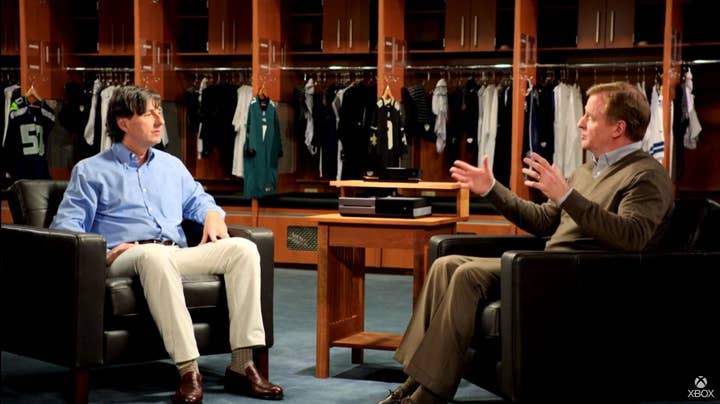
Everybody hated it. It stood in stark contrast to Sony's PS4 reveal from that February, and actually had more than a few things in common with Sony's PS3 pitch.
QUOTE | "Sony Computer Entertainment boss Ken Kutaragi has outlined his vision for the PlayStation 3 as a media centre which excels at all forms of entertainment, not just games - and criticised the design of Xbox 360." – The lead of a 2005 story about how PS3 was "not a game machine" like the competition about to eat its lunch, but instead was "a computer that's meant for entertainment."
QUOTE | "Today, we're thrilled to unveil the ultimate all-in-one home entertainment system, the one with the power to create experiences that look and feel like nothing else. The one that makes your TV more intelligent. The one system for a new generation." – Mattrick introducing the Xbox One at the system's reveal event, and positioning it as more than just a game machine.
Any rando with a Kotaku guest editorial could see this might be a problem.
QUOTE | "I certainly see the temptation to emphasize all sorts of experiences that these boxes might bring to the living room. These new machines can do a lot. The risk is that either or both of the new platforms emphasize these 'value-add' experiences too much, both in the user interface on the consoles themselves, or in the story they tell consumers when they unleash their avalanche of advertising. To paraphrase a political slogan, it's about the games, stupid." – The day before the Xbox One reveal, a timely warning arrives in a Kotaku guest editorial written by… [checks byline] John Riccitiello?
Sigh. This Week in Business is an ouroboros, a cursed history of the games industry as if it were written by the Star Wars people who insist everything in that universe must revolve around one hopelessly dysfunctional family from a desert planet out in the galactic sticks.
Anyway, Microsoft didn't even address the always-online rumors in the reveal event, with executives giving misleading half-answers about it and letting people work up anger over it for weeks before they finally confirmed the Xbox One's online restrictions. They went over about as well as Unity's Runtime Fee.
It also handed Sony a massive marketing win at E3 where it announced it would start charging for online multiplayer with the PS4 but nobody cared because the news was slipped into a two-minute segment where Jack Tretton explained at tortured length that the PS4 would work basically the exact same as every console up to that point worked, all to wild applause.
If Sony's message with the PS4 was "We have learned our lesson from the PS3," then Microsoft's message with the Xbox One was more along the lines of "Stark moments of hubris sound totally rad and we would like one of our very own please."
(That hubris is only made funnier by remembering that despite the Xbox 360's good vibes, it still finished the generation in third place of a three-console race.)
Much like Unity with its Runtime fee, Microsoft would cave in the face of the backlash
And much like Unity with its Runtime fee, Microsoft would cave in the face of the backlash, emerging from the ordeal not having gained what it sought and having incinerated a load of good will in the process. In fact, the whole timeline of these disasters feels familiar.
STAT | 25 days – The time between Microsoft announcing Xbox One's online restrictions and Mattrick leaving the company, with Microsoft offering a sheepish reversal of the restrictions about halfway between.
STAT | 28 days – The time between Unity announcing the Runtime Fee and Riccitiello stepping down, with Unity offering a sheepish reversal of significant parts of the Fee about halfway between.
So what about accountability? Well I've already spoiled the fact that Mattrick left the company. But this isn't quite the same thing as a failed executive falling on his sword. Riccitiello retired from Unity, after all, while Mattrick left for another job: CEO of Zynga.
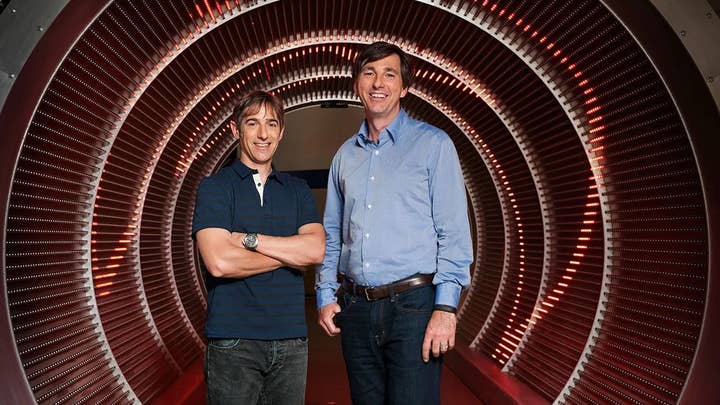
Sure, Zynga was in a rough spot during its transition from Facebook to mobile and seemed like a clear step down from Microsoft at the time.
And yes, Mattrick's stint with Zynga was only marginally more successful than the Xbox One reveal.
And I readily admit, we're still talking about Mattrick's stint with Xbox ending in abject disaster so there are no illusions about why he left.
But Zynga wasn't exactly a dead-end gig, and being handed the CEO role for a major gaming company with a foothold in the exploding mobile market isn't exactly a prime example of accountability in action.
Satoru Iwata
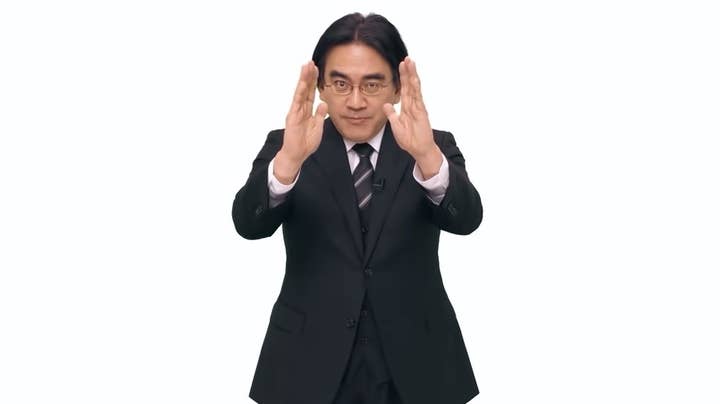
Look, I appreciate Satoru Iwata as much as the next person, and I think the industry would be in a much healthier place if more executives embraced his approach toward leadership.
It's easy to think of his immense contributions to the industry and wonder why he could possibly be getting his own section in a column on accountability, but Nintendo had some rough years with him at the helm.
In hindsight, some of that isn't his fault. Smartphones and tablets were softening the dedicated handheld market right as the 3DS was getting ready to launch, and the Wii U was an awkward bridge product between Nintendo's separate-handheld-and-console past and its hybrid future at a time when a full realization of that vision (like the Switch) probably wasn't feasible for the company.
Nintendo added to its woes with some unforced errors that ultimately fall on Iwata's shoulders
But even in retrospect, Nintendo added to its woes with some unforced errors that ultimately fall on Iwata's shoulders.
Let's start with system launches. Nintendo had already learned the importance of a strong launch software lineup to a system's success back in the Gamecube days, and even publicly acknowledged it as one of the biggest lessons it learned heading into the Wii launch.
Yet when the 3DS arrived in March of 2011, all the company could muster for launch day was Pilotwings Resort, Nintendogs + Cats, and Steel Diver. Whatever you think about the individual quality of those games, they weren't making a convincing argument for people to drop $250 – the most expensive piece of Nintendo hardware ever to that point – on a 3DS.
Combine that poor lineup and uncharacteristically high launch price with a glasses-free 3D gimmick that differentiated itself from the competition but added virtually nothing to the experience, and the 3DS struggled out of the gates. Things were looking better around the end of its first year thanks to an unprecedented price cut and a holiday 1-2 punch of Super Mario 3D Land and Mario Kart 7, but these were solutions to problems of Nintendo's own making.
When the Wii U launch rolled around in 2012, it was much the same story. The Game Pad was different but didn't add much to the experience, the price was higher than expected for a Nintendo system ($300 for the basic system and $350 for the Deluxe model with more storage), and the launch software lineup was lacking, with New Super Mario Bros. U and Nintendo Land carrying the weight on the first-party front.
The situation was made considerably worse by a series of delays to a first-year lineup that probably would have been questionable even if everything hit on time. Just two months after launch, Iwata was apologizing for a software drought thanks to delays to Pikmin 3, Wii Fit U, The Wonderful 101, and Game & Wario. Ubisoft saw what was happening with the system and delayed its much-anticipated (and finished!) Wii U exclusive Rayman Legends almost a full year to launch it aside Xbox 360 and PS3 versions of the game.
Throw in some missed sales forecasts and there was plenty of pressure on Iwata to step down, or for Nintendo to show him the door.
QUOTE | "I don't know why Iwata is still employed." – Wedbush analyst Michael Pachter, clearly frustrated in late 2013 with Nintendo's continued refusal to take advantage of the growing mobile market in any way.
Some shareholders felt the same way, and asked Iwata why he hadn't resigned in an earnings call. The heat on Iwata was seeping into everything the company did.
QUOTE | "All of this talk of 'Oh is Nintendo going to hit its numbers? Is Mr. Iwata responsible?' and all these discussions I think are just silly ones to have because Mr. Iwata is managing our company and I don't think there's anyone better to manage it than him." – Shigeru Miyamoto downplays the negative sentiment around the company in an E3 2013 interview with us.
Looking back, it's kind of amazing to me Iwata not only didn't get the boot then, but stayed in the role through two more lean years and serious health issues, working right up until his tragic death in 2015 at the age of 56.
For the most part, Iwata stayed the course, but the pressure seemed to get to him when, just two months before his death, he finally relented on a long-standing point of contention and took Nintendo into mobile through a partnership with DeNA. Even then he was clear about where Nintendo's "real" business lay, as the company first announced the Switch – under the codename NX – alongside the DeNA deal.
Iwata held himself accountable so others didn't need to do it for him
So why are we talking about Iwata here if Nintendo's shareholders and board of directors never held him accountable for the company's struggles?
Because Iwata held himself accountable so others didn't need to do it for him. I don't think I've ever seen an executive as quick to acknowledge his own failures, or that of his company. And when it was time for somebody to take responsibility for those shortcomings, Iwata knew the blame should be borne together, with each carrying the burden to the degree they were responsible for it.
STAT | 50% - The pay cut Iwata took in 2011 to hold himself accountable for the 3DS' poor launch. The company's other representative directors took a 30% cut, with other executives losing 20% of their base pay.
QUOTE | "If we reduce the number of employees for better short-term financial results, however, employee morale will decrease, and I sincerely doubt employees who fear that they may be laid off will be able to develop software titles that could impress people around the world…
"I also know that some employers publicize their restructuring plan to improve their financial performance by letting a number of their employees go, but at Nintendo, employees make valuable contributions in their respective fields, so I believe that laying off a group of employees will not help to strengthen Nintendo's business in the long run." – In 2013, Iwata responds to a shareholder questioning why Nintendo didn't lay people off in order to post profits in line with past performance.
John Riccitiello
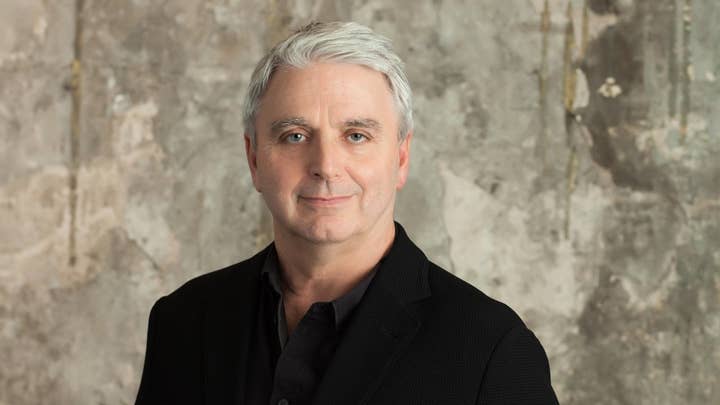
Bringing it back to Riccitiello as an example of accountability, he obviously isn't practicing Iwata's version of it, particularly when it comes to layoffs.
QUOTE | "We didn't cut 1% of jobs because we were trying to make a P&L. We did it because we were focusing our energy. Like with lots of things – your parents when they ask you to eat your vegetables – they're not doing it to punish you. They're doing it to facilitate your better and more nutritious self." – Riccitiello explains his approach to layoffs to us last year. (He laid off about 900 more across two rounds of cuts this year so you know Unity must be super-nutritious by now.)
That said, I still see this week's resignation as a more concrete form of accountability than we're used to seeing.
Riccitiello didn't get kicked upstairs and take an on-paper promotion like Ken Kutaragi did.
Riccitiello didn't take a new job with a different company that let him save face like Don Mattrick did.
Riccitiello didn't take a pay cut and keep the position like Iwata did. (And even if he had, so much of Riccitiello's pay is in stock and bonuses it would have been a pretty hollow gesture.)
No, Riccitiello saw the firestorm, understood the responsibility for it ultimately lay with him as the CEO, and he left.
Riccitiello saw the firestorm, understood the responsibility for it ultimately lay with him as the CEO, and he left
There's really just one time I can remember something like that happening at a gaming company of this size before.
QUOTE | "My decision to leave EA is really all about my accountability for the shortcomings in our financial results this year. It currently looks like we will come in at the low end of, or slightly below, the financial guidance we issued to the Street, and we have fallen short of the internal operating plan we set one year ago. And for that, I am 100% accountable." – John Riccitiello, in an email to Electronic Arts employees announcing his resignation as CEO of the company in March of 2013.
Riccitiello stepped away from EA after a painful years-long effort to take a packaged goods company and turn it into a digital-first business. And by all accounts, that effort was successful; it just took too long to save his job. EA has enjoyed incredible growth in the past decade, and much of what has gone right for the company has its origins in Riccitiello's stint with the company. (Though to be fair, he also threw up plenty of bricks like the $300 million Playfish acquisition and the would-be Steam competitor Origin.)
I wouldn't expect that history to repeat for Unity though. While Riccitiello left EA well-positioned to grow in a digital gaming landscape, his departure from Unity does nothing to address the underlying problems that prompted the bold/reckless Runtime Fee in the first place.
For one thing, I doubt Riccitiello came up with the Runtime Fee policy on his own, and there are who-knows-how-many Grima Wormtongues on the board of directors and in the executive ranks responsible for the very worst breaches of trust the policy embodies.
For another, whoever takes on the CEO role now will be inheriting many of the same problems and pressures Riccitiello faced, including Unity's identity crisis – Is the target market game devs? Movie makers? Casinos? Military contractors? – and its ongoing quest to turn its first real profit in two decades of existence, a quest that has only grown in urgency alongside the cost of borrowing money. Oh, and now it also has to repair the bridges burned by its dalliance with attempted extortion.
Even so, this at least is a warning sign to whoever takes that role that they will be expected to be accountable for what the company does with them in charge. And for Unity, it is the beginning of a lengthy and difficult (if not impossible) process to rebuild trust with developers.
It's not the end of Unity repairing the damage that's been done, but it is a good start.
The rest of the week in review
QUOTE | "Be straight with them, be clear with them, just don't be a dick." - No Brakes Games' head of studio Sitara Shefta offers advice on how games industry leaders should treat employees in this write-up of her talk from Develop Brighton.
STAT | 633 – How many days it took for Microsoft's acquisition of Activision Blizzard to go from announced to actually done.
STAT | Less than two months – In all likelihood, how long we have to wait until Bobby Kotick is no longer at Activision Blizzard. With the deal closing, Kotick said he has agreed to stay on to help with the transition through the end of 2023. Dude is bolting so fast he's going to leave a Bobby Kotick-shaped hole in the wall.
STAT | Forever – How long Ubisoft will have the cloud streaming rights for Call of Duty and any other Activision Blizzard titles coming out over the next 15 years.
STAT | ¥20,000 (about $135) – How much more expensive the digital-only PS5 will be in Japan compared to when the system launched three years ago. The latest price hike is happening alongside the November launch of the re-designed and slightly smaller PS5. The digital version of the hardware is also getting a $50 price hike to $450 in the US.
QUOTE | "Why are these laid off people – people who I will bet did not finish last year $802 million richer than they began it – being asked to ignore their own bottom line and their own financial security to benefit the company that just fired them?" – We looked at the suit ex-BioWare employees filed against EA in a bonus edition of This Week in Business that ran on Tuesday, in case you missed it.
STAT | 21% - Despite the overall mobile games market being down 7% last year, the action genre was up 21% on the strength of the MOBA subgenre and Diablo Immortal. This piece by My.Games Venture Capital executive director Nikita Matsokin has a lot more detail on what parts of the mobile industry are working well, and which ones aren't.
STAT | $868 million – The total revenue of India's video games market, according to Niko Partners. That figure is expected to grow to $1.58 billion in 2027.
QUOTE | 'Harebrained Schemes' staff was significantly reduced over the summer as the game entered its last phase of development and launch preparations." – A Paradox representative addresses reports that 80% of the studio was laid off as the publisher wrote down the cost of the just-released game The Lamplighters League.
STAT | 91 – The number of jobs at Team17 reportedly at risk as part of its recently confirmed restructuring plan. That represents about one-third of the indie publisher's headcount, and follows a round of layoffs from earlier this year.
STAT | 18% - The year-over-year increase in gross profits for the first half of Team17's financial year, as reported by the company last month.
QUOTE | "I'm [also] looking forward to the sub versus dub debates that will happen between players. [Between] the people that enjoy the English language voiceover, and those that prefer the native Arabic audio while reading the subtitles instead, it's going to be very interesting." – In an interview about the effort that went into making Assassin's Creed Mirage the first game in the series with a full Arabic voice over, Ubisoft's Mohammed Alemam is curious how players will prefer to play through the game.
QUOTE | "Iger's deputies are pushing him to consider a bolder transformation of Disney from gaming licensee to gaming giant through, say, an acquisition of Electronic Arts. But, as with everything else, he's been noncommittal." – A scary line from a Bloomberg article on Disney CEO Bob Iger suggesting there's interest in the company's executive ranks to re-enter the games industry it fled from after a disappointing run less than a decade ago.

